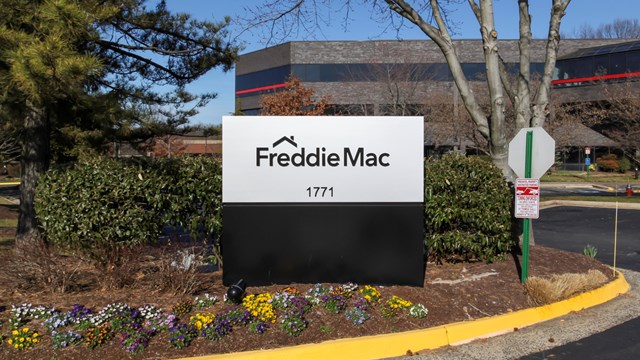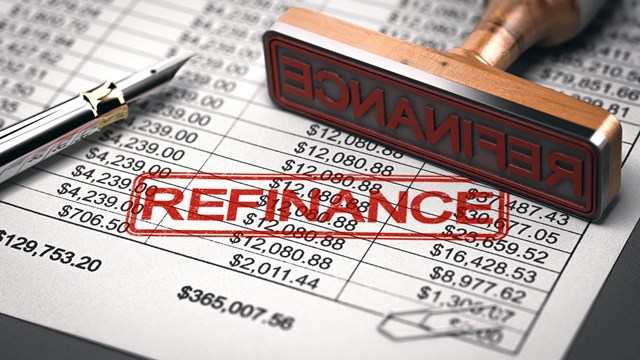Today's economy is one, which has economists using words such as "perplexing" and "conundrum." Making predictions as to what the economy will do next week is difficult--trying to predict what will happen six months or a year down the road is anyone's guess. But it's a fact that interest rates are at lows not seen since our parents were inking their first mortgages.
A snapshot of the current economic climate shows a steady improvement over the last 18 months. The Federal Reserve has raised the short-term interest rates six times over the last year; yet mortgage rates remain at an all-time low. If you are in the market for a mortgage or desire to refinance your underlying mortgage, now is the time to do so. In June of 2004, a 30-year fixed-rate mortgage carried an average interest rate of 6.3 percent. On June 22, 2005, that same 30-year fixed-rate mortgage can be locked in at an average rate of 5.34 percent, according to www.bankrate.com--making them the lowest interest rates seen in the market since the 1970's.
But what is making the U.S. economy such a mystery to experts and laymen alike? As in most complicated equations, multiple variables are in play. When trying to predict the state of the economy and its future direction, economists look for patterns. Economists believe this current trend can be attributed to several factors. Although the economy has been growing since 2001, we have seen increases in the national unemployment rate. Combine this with steadily rising oil prices, and the market traders who help determine mortgage rates are not entirely convinced of the economy's fundamental stability and the strength of the current recovery. In addition, the U.S. economy has been enjoying a large, steady influx of capital from overseas markets, which has kept the mortgage market very liquid. International investors from Europe and Asia are investing more heavily in treasury securities, which has helped keep the interest rates down.
Regardless of the reasons for this anomaly, consumers know one thing for sure: this is a borrower's market. Cooperatives seeking to refinance their underlying mortgages are no different. However, before you and the board of your co-op dash over to your local bank to refinance the building's underlying mortgage or seek additional capital for improvements or repairs, there are a few important things you should know.
Tax write-offs aside, and despite the fact refinancing will affect you directly as a shareholder, your co-op board does not have to put their refinancing plan to a vote amongst the shareholders--unless it is expressly written in the cooperative's bylaws. And most of the time, says Edward Howe III, managing director of New York City's National Cooperative Bank, it's not; your co-op board has the power to refinance an underlying mortgage or obtain additional capital without your approval as a shareholder.
"As shareholders, you vote for the members of the co-op board. Hopefully you voted for candidates who are responsible and are out to do what's best for the co-op," says Howe. "So the board should be able to make those decisions."
Given that shareholders often cannot agree on a color for the lobby walls, Howe says that it's sometimes best to leave certain financial decisions to the board alone.
Most economists and experts in the market believe mortgage interest rates will eventually begin to creep upward. How quickly that will happen is uncertain. However, interest rates have the ability to go up very quickly in the right market conditions. What effect would that have for a co-op and its shareholders? Like the long-term course of rates themselves, this is also the subject of debate.
"Honestly, a percentage point increase really does not make a huge difference to the individual shareholder," says Victor Rich, a senior partner at Manhattan-based RSM McGladrey, Inc., a business and tax consulting firm. "As long as the value of the property remains constant--or better yet, increases, as property seems to be doing in today's market--you're fine. If the value of the property begins to drop, however--then it can hurt."
Howe agrees adding, "It is important the debt on the co-op remains in line with the value of its units. If you are buying into a co-op--say $200,000 for a two-bedroom--and the debt is $25,000 on the $200,000 unit, it's a low debt burden for that unit. If interest rates go up, and instead of five percent, you are now paying eight percent, the cost increase is negligible. However, if the same building has a $5 million debt, then it's a different story."
"When looking at units in a co-op, look at their ratio of real estate taxes and debt service to overall maintenance charges," Howe continues. "This is a clear indication that the building may be highly leveraged. On average, real estate taxes and debt service is approximately 40 percent of the overall maintenance charges. If you encounter a co-op where that percentage is, say 85 percent, something is wrong."
Others aren't as sanguine on the subject. "Some say a point or two is negligible, but to me, any increase in the interest rate is significant," contends Neil Sonenberg, senior partner of Manhattan-based Rosen Seymour Shapss Martin & Company LLP. "Say your co-op is carrying $1 million in debt. One percentage point of that is $10,000. Any additional dollar a co-op must pay is not good. Any increase or decrease impacts the overall financial situation of a co-op and affects its shareholders."
Before a co-op approaches a financial institution about refinancing, it should carefully assess its current financial position and accurately determine what the real refinancing needs are. In instances where the co-op may be seeking additional money in order to make capital improvements or to comply with Local Law 10 or 11 requirements, it is not uncommon for a co-op to end up borrowing too little in the name of frugality.
"Co-ops should work with their accountants to accurately forecast their needs for capital, as well as the building's expenses five, ten and up to 15 years ahead," says Sonenberg. "This way, the co-op will borrow the appropriate amount of money and not fall short, sending them back to the bank a couple of years later for another round of financing [when interest rates may not be so favorable.]"
According to Sonenberg, "A co-op should ask themselves the following questions: What are our requirements for cash flow in the next five, ten, 15 years? And can the board survive without refinancing and pay down the current mortgage?"
Rich adds, "With the low interest rates, co-ops can do work on the building that might not be absolutely necessary for another year or so. And this is a very smart approach. In the long run, it may cost the co-op less than doing the work in stages. For example, I was president of my co-op board when I was at the Hudson House. We knew we had an asbestos problem in the garage area. This was in the 1980s, and at the time, the interest rates had dropped. We seized the opportunity and decided we were going to do pre-emptive work on removing the asbestos. Instead of doing the work in patches and over time, we did all at once. We refinanced at that point, and it ended up costing us less in the long run."
From the lending institution's perspective, there are certain factors that can make one co-op a better risk over another. As a cooperative, the physical state of the building, repayment history, debt burden, and overall debt-to-value ratio of the building affect the creditworthiness of the co-op. The quality of commercial tenants and the size of your reserve fund all play a part in determining the financial attractiveness of your building in the eyes of lending institutions.
And lastly, cautions Sonenberg, "Always make certain you are using the monies for capital improvements such as Local Law 10 and 11 work. Your refinancing dollars should not be used to pay for operating expenses."
Once the co-op decides it will move forward and refinance the underlying mortgage or obtain a second mortgage for capital improvements, the board should decide whether they will approach banks directly or use the services of a mortgage broker or banker in order to get the best rates available. While working directly with lenders may avoid the expense of a broker's fee, the time and research saved by using a professional broker or mortgage banker to find the best deal for your building may be well worth the price.
Either way, advises Howe, "First of all, the co-op should carefully assess their current financing. They should ask things like, how much is the current loan? What is it maturity date? What's the current interest? How much are the payments? Are there any prepayment penalties? I would then advise them to go back to the bank they have their current mortgage with. It is very easy to remain with your existing institution. They have your payment histories, and you have already built a relationship with them."
"There are two ways of approaching the task," adds Rich. "As the board, you can contact half a dozen banks or lending institutions and request proposals for your needs. Or you can hire a financial consultant to do the research and bring the best deal or two to the board for a decision. You must certainly look around, though--on any given month, it can be a different institution that's offering the best deal."
According to Sonenberg, "I also strongly recommend you involve your accountants and lawyers in the process. They are professionals who can open doors that had not been explored. I think sometimes there is too much delegation to the managing agent on behalf of the board. People do what you 'inspect' versus what you 'expect.' In other words, they've got a million other things to do, and may only do the minimum necessary leg work and not go that extra mile. The more proactive and involved the board is, the more they will save in the long run."
One thing all experts and analysts agree on is that predicting what will happen with interest rates in the future is difficult.
"My guess is that interest rates will go up," Rich speculates. "They are pretty low right now. It is hard to predict. There are so many factors that influence interest rates--more so today than say, five years ago. The government has much control over the short-term interest rates and can tweak them as they see necessary. At the same time, you have international factors that influence our economy. If rates go up, the real estate market will be negatively impacted."
"Honestly, if you asked me a year ago where interest rates would be now, I would have thought they would have been higher than they are today," says Howe. "They are at all-time lows."
That being said, the pros agree that co-ops should borrow wisely. The low rates may give borrowers a false sense of security, and they may become overleveraged.
"Always make sure you pay down the loan as quickly as possible. Make certain your goal is to amortize the loan on a faster schedule. It is easier to pay off a $1 million loan at five percent than it is to pay it off at eight percent. Paying only the interest and not paying down the principal can be a potential time bomb, should interest rates go up."










Comments
Leave a Comment